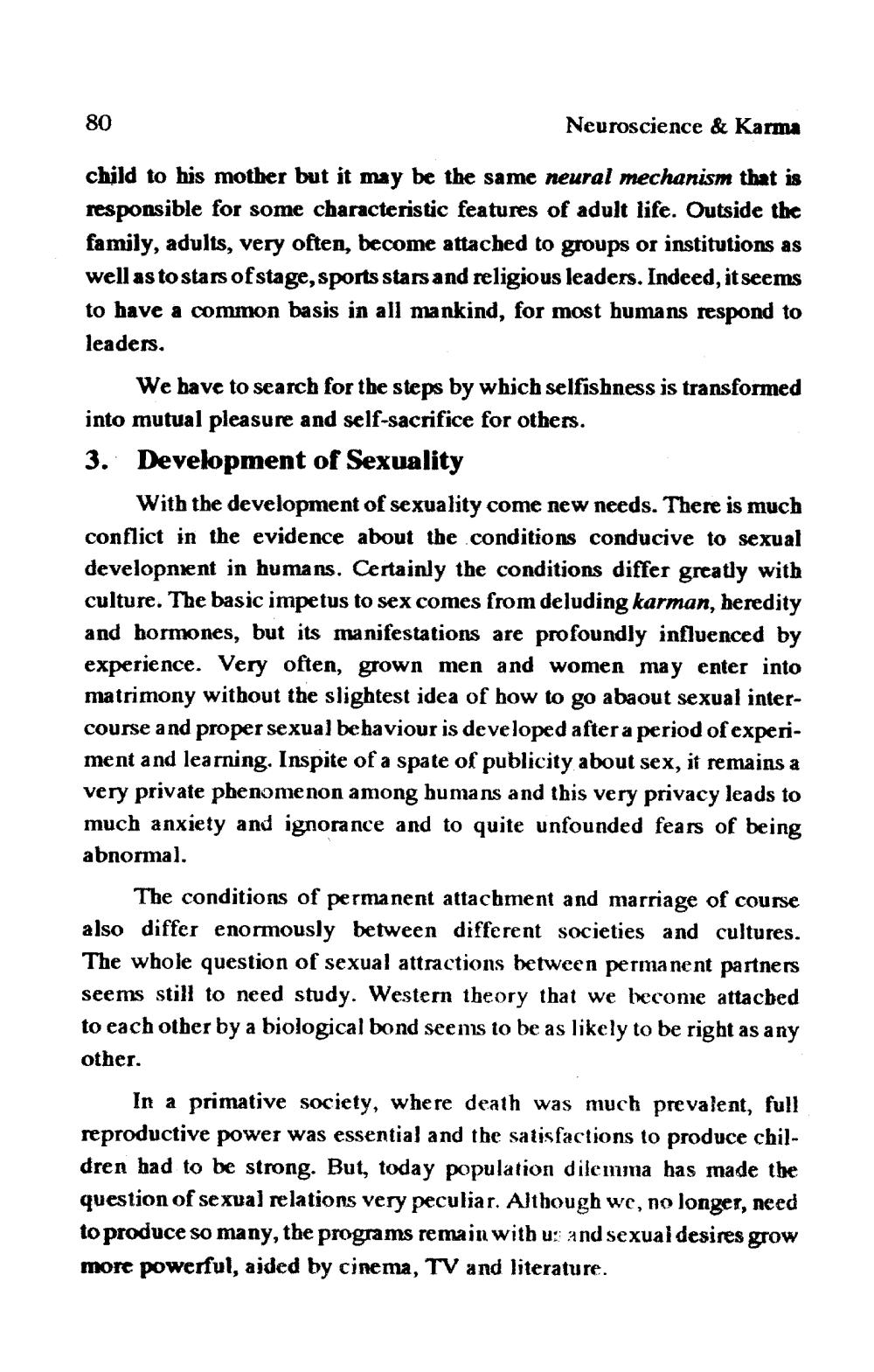________________
80
Neuroscience & Karma
child to his mother but it may be the same neural mechanism that is responsible for some characteristic features of adult life. Outside the family, adults, very often, become attached to groups or institutions as well as to stars of stage, sports stars and religious leaders. Indeed, it seems to have a common basis in all mankind, for most humans respond to leaders,
We have to search for the steps by which selfishness is transformed into mutual pleasure and self-sacrifice for others. 3. Development of Sexuality
With the development of sexuality come new needs. There is much conflict in the evidence about the conditions conducive to sexual developnxent in humans. Certainly the conditions differ greatly with culture. The basic impetus to sex comes from deluding karman, heredity and hormones, but its manifestations are profoundly influenced by experience. Very often, grown men and women may enter into matrimony without the slightest idea of how to go abaout sexual intercourse and proper sexual behaviour is developed after a period of experiment and learning. Inspite of a spate of publicity about sex, it remains a very private phenomenon among humans and this very privacy leads to much anxiety and ignorance and to quite unfounded fears of being abnormal.
The conditions of permanent attachment and marriage of course also differ enormously between different societies and cultures. The whole question of sexual attractions between permanent partners seems still to need study. Western theory that we become attacbed to each other by a biological bond seems to be as likely to be right as any other.
In a primative society, where death was much prevalent, full reproductive power was essential and the satisfactions to produce children had to be strong. But, today population dilemma has made the question of sexual relations very peculiar. Although we, no longer, need to produce so many, the programs remain with us and sexual desires grow more powerful, aided by cinema, TV and literature.




